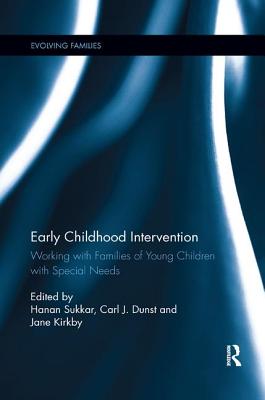Early childhood is considered a critical but often vulnerable period in a child’s development where early identification and intervention can be crucial for improving children’s developmental outcomes. Systems and family-centred perspectives are vital to support families and build their capacities to lead normalized lives with improved family quality of life. This book explores the family-centred practices and systems factors which influence families’ experiences raising children with complex needs. It also considers the ways in which professionals can work with families to build and support parent and child competence. Conceptual and practical work from Australia, Canada, Europe and the United States present descriptions of and implications for different family system frameworks and early-childhood programs. Contributors in this edited volume bring together contemporary information that bridges the research to practice gap in supporting families of young children with disabilities or delays.
Chapters include:
- Early Intervention for Young Children with Developmental Delays: Contributions of the Developmental Systems Approach
- Family Composition and Family Needs in Australia: What Makes a Family?
- Working with Families in Early Childhood Intervention: Family-Centred Practices in an Individualised Funding Landscape
- Family Systems and Family-Centred Intervention Practices in Portugal and Spain: Iberian Reflections on Early Childhood Intervention
This book will attract the attention scholars of Parenting and Families; Child Development and Childcare.












